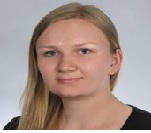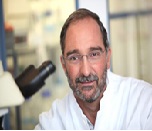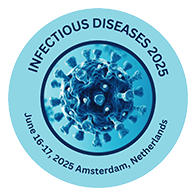About Conference
Welcome to the 5th International Conference on Microbiology and Infectious Diseases, set to take place on June 16-17, 2025, in the vibrant city of Amsterdam, Netherlands. We are excited to bring together leading microbiologists, infectious disease experts, and healthcare professionals from around the globe. This event is designed to foster insightful discussions and share cutting-edge research, advancements, and techniques within the field of microbiology and infectious diseases.
Our program covers a comprehensive array of topics, from novel microbial diagnostics and innovative antimicrobial therapies to insights into emerging infectious diseases and updated infection control protocols. Renowned speakers and industry leaders will provide invaluable perspectives, sparking discussions that lead to deeper understanding and fresh collaborations.
We aim to provide a supportive, inclusive, and engaging environment where participants can connect, share expertise, and strengthen professional networks. Whether you're seeking the latest research, eager to engage with peers, or looking to form new collaborations, the 5th International Conference on Microbiology and Infectious Diseases promises a rewarding experience for all attendees. Join us in Amsterdam as we come together to shape the future of microbiology and infectious disease management.
SESSIONS AND TRACKS
Track 1: Clinical Microbiology
Track 2: Microbiome and Health
Track 3: Diagnostic Innovations in Clinical Microbiology
Track 4: Antimicrobial Resistance
Track 5: Immunology and Vaccinology
Track 6: Food Microbiology and Food Borne Diseases
Track 7: Therapeutic Advances in Infectious Diseases
Track 8: Infection Prevention and Control
Track 9: Bioinformatics and Computational Microbiology
Track 10: Immunization and Vaccine Development
Track 11: Immunology and Host-Pathogen Interactions
Track 12: Clinical Trials and Therapeutic Advances in Infectious Diseases
Track 13: Antibiotic Alternatives and Antimicrobial Stewardship
Why to attend?
-
Stay Updated on the Latest Research: Gain insights into groundbreaking studies, innovative technologies, and new methodologies from top researchers and thought leaders in microbiology and infectious diseases.
-
Learn from Experts: Benefit from sessions led by internationally recognized speakers who will share their experiences, success stories, and challenges. This is an opportunity to deepen your knowledge and stay at the forefront of the field.
-
Collaborate and Network: Connect with like-minded professionals, industry leaders, and researchers from around the world. Forge valuable relationships that can lead to new collaborations, partnerships, and professional support.
-
Engage in Interactive Sessions: Participate in workshops, panel discussions, and Q&A sessions, which provide a hands-on experience to solidify your learning and clarify your questions with the experts.
-
Discover Innovative Solutions: Learn about emerging technologies and tools in microbial diagnostics, treatment options, and infection control strategies that can enhance your practice and improve patient outcomes.
-
Explore Amsterdam’s Research Hub: Experience Amsterdam, a city rich in culture and innovation, and discover how this thriving research hub fosters scientific advancements in microbiology and beyond.
-
Career Development Opportunities: Present your research, gain visibility, and receive feedback from esteemed professionals. This conference is an ideal platform to expand your academic profile and strengthen your career trajectory.
-
Be Inspired: Attending the conference offers a unique opportunity to immerse yourself in a knowledge-rich environment, leaving you with new insights, ideas, and inspiration for advancing your work.
Who will be the participants?
-
Microbiologists and Infectious Disease Specialists: Leading researchers and clinicians who specialize in studying microorganisms and their effects on human health.
-
Healthcare Professionals: Doctors, nurses, and medical practitioners involved in treating infectious diseases, improving patient outcomes, and implementing infection control measures.
-
Public Health Experts and Epidemiologists: Professionals focused on disease prevention, public health policy, and responding to infectious disease outbreaks on a larger scale.
-
Pharmaceutical and Biotech Representatives: Industry professionals engaged in developing and researching new antimicrobial therapies, diagnostics, and vaccines.
-
Clinical Laboratory Scientists and Technicians: Laboratory specialists who play a crucial role in identifying and understanding infectious pathogens, antimicrobial resistance, and more.
-
Academic Researchers and Students: University-affiliated researchers, PhD candidates, and students in microbiology, infectious diseases, and related fields eager to share and learn from recent research.
-
Government and Regulatory Officials: Representatives from health agencies and regulatory bodies who oversee and influence health policies and infectious disease management.
-
Infection Prevention and Control Experts: Professionals working to implement effective infection control protocols in healthcare and community settings.
-
Medical Device Manufacturers and Innovators: Developers of diagnostic tools and devices that aid in the detection and monitoring of infectious diseases.
-
Non-Governmental Organizations (NGOs): Representatives from global health organizations and NGOs focused on combating infectious diseases, particularly in resource-limited settings.
With such a broad array of attendees, the conference will foster a collaborative and multidisciplinary exchange, facilitating progress in clinical microbiology and infectious disease management.
Market Analysis Report
1. Market Overview
-
Industry Scope: Clinical microbiology and infectious diseases encompass diagnostic tools, microbial identification methods, antimicrobial therapies, and infection control.
-
Market Size and Growth Projections: The global market for clinical microbiology was valued at around $12 billion in 2023 and is expected to grow at a CAGR of 6-8% over the forecast period, driven by factors like rising infectious disease cases, technological advancements, and increasing investment in healthcare infrastructure.
2. Market Drivers
-
Rising Infectious Disease Prevalence: Increasing cases of diseases like COVID-19, tuberculosis, and emerging infections such as antibiotic-resistant bacteria are fueling demand.
-
Technological Advancements: Innovations in molecular diagnostics, next-generation sequencing (NGS), and artificial intelligence (AI)-enabled diagnostic tools.
-
Investment in Healthcare: Expanding healthcare budgets globally, particularly in infectious disease research and response.
-
Growing Awareness and Government Initiatives: Increased public health campaigns, vaccination drives, and international cooperation on disease prevention.
3. Market Challenges
-
Antimicrobial Resistance (AMR): The increasing rate of AMR strains makes diagnostics and treatments more complex.
-
High Cost of Advanced Diagnostics: Molecular diagnostics and advanced microbiology equipment can be prohibitively expensive, limiting adoption in low-income regions.
-
Regulatory Compliance and Approval Processes: Varying regulations across regions complicate market entry for new diagnostic and therapeutic products.
4. Market Segmentation
-
By Product Type:
-
Instruments (laboratory equipment, automated systems)
-
Reagents and Kits (diagnostic assays, microbial culture media)
-
Software (data management, diagnostic interpretation software)
-
By Technology:
-
Molecular Diagnostics
-
Microbial Culture Techniques
-
Immunodiagnostics
-
Mass Spectrometry
-
By End-User:
-
Hospitals and Clinics
-
Diagnostic Laboratories
-
Academic and Research Institutes
-
Pharmaceutical Companies
5. Regional Analysis
-
North America: The largest market share due to advanced healthcare infrastructure, extensive R&D, and high diagnostic adoption.
-
Europe: Strong public health focus on infection control and well-established clinical microbiology markets in countries like Germany, France, and the UK.
-
Asia-Pacific: Rapidly growing due to rising investments in healthcare infrastructure, growing awareness, and the prevalence of infectious diseases in countries like India and China.
-
Latin America and MEA (Middle East & Africa): Emerging markets with growing healthcare investments and increased focus on infectious disease control.
6. Competitive Landscape
-
Key Players: Major companies include bioMérieux, Thermo Fisher Scientific, Danaher Corporation, Bruker Corporation, Cepheid, Roche Diagnostics, Becton Dickinson (BD), and Abbott Laboratories.
-
Product Launches and Innovations: Emphasis on new product development, automation, and expanding the capabilities of diagnostic software.
7. Emerging Trends
-
Point-of-Care Testing (POCT): Growing adoption of POCT devices for rapid diagnostics in outpatient and remote settings.
-
Automated and AI-Powered Diagnostics: Increased use of automation and AI to reduce diagnostic time and improve accuracy.
-
Genomic Sequencing in Microbiology: Rising applications of NGS in pathogen detection and genetic profiling.
-
Cloud-Based Data Management Systems: To streamline patient data sharing, analysis, and reporting across healthcare systems.
8. Market Forecast (2024-2028)
-
Revenue Growth: Estimated to reach $16-18 billion by 2028, driven primarily by increased demand in emerging regions, expansion of POCT, and a surge in personalized diagnostics.
-
Growth Opportunities: Significant opportunities in Asia-Pacific, the development of affordable diagnostics, and advanced AI-integrated diagnostic tools.
9. Strategic Recommendations
-
Investment in Emerging Markets: Focus on expanding diagnostics in high-potential regions like Asia-Pacific and Africa.
-
Focus on Cost-Effective Solutions: Developing affordable diagnostic solutions for low- and middle-income countries.
-
Enhance Digital Integration: Investing in AI, machine learning, and cloud-based data analytics for improved diagnostics.








